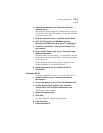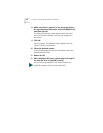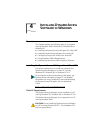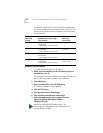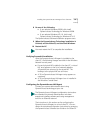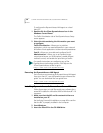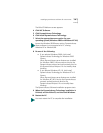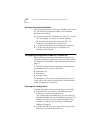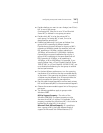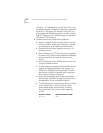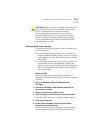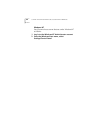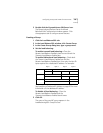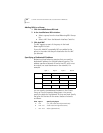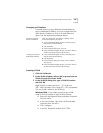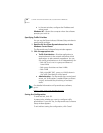
Configuring Groups and VLANs for a Server NIC 61
■ Decide whether you want to use a foreign (non-3Com)
NIC in one of the groups.
One foreign NIC (one that is not a 3Com EtherLink
Server NIC) is allowed in one group per server.
■ Decide which NIC is to be the primary NIC in
each group. If a foreign NIC is used, it must be
designated the primary NIC.
■ Disable load balancing if you have set failover for a
group of NICs operating at different speeds.
DynamicAccess supports failover for a group of NICs
operating at different speeds (for example, with one
NIC operating at 10 Mbps, another operating at
100 Mbps, and another at 1,000 Mbps). However,
DynamicAccess supports load balancing only for a
group of NICs operating at the same speed (with all
NICs operating at 10 Mbps, or all operating at
100 Mbps, or all at 1000 Mbps). For example, if you
specify failover from a 3Com Gigabit EtherLink Server
1000 PCI NIC to a 3Com EtherLink 10/100 PCI NIC, you
must disable load balancing for that group to achieve
the best performance.
■ For the best failover performance, turn the spanning
tree feature off at switches that are connected directly
to the server. If the spanning tree feature is turned on,
a failover may be delayed up to 30 seconds while the
switch processes the spanning tree algorithm.
■ Plan the cable changes required to connect each primary
NIC and all secondary NICs to the same network segment.
■ Observe the recommended support limit of four groups
per server.
■ The following guidelines apply to groups under
Windows 2000:
802.1p Support Property—The value of the
Windows 2000 802.1p support property must be
the same for all NICs in a group. For example, if this
property is enabled for the primary NIC, it must also be
enabled for all other NICs in the group.
Microsoft Task Offload Support—It is possible to
form a group of NICs that have different levels of
support for Microsoft Task Offload features (TCP



